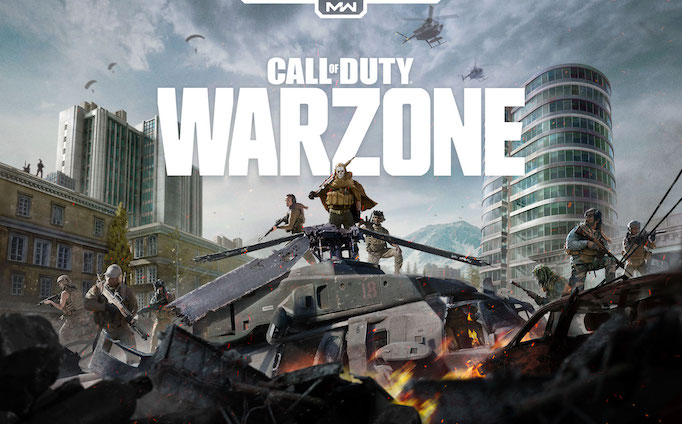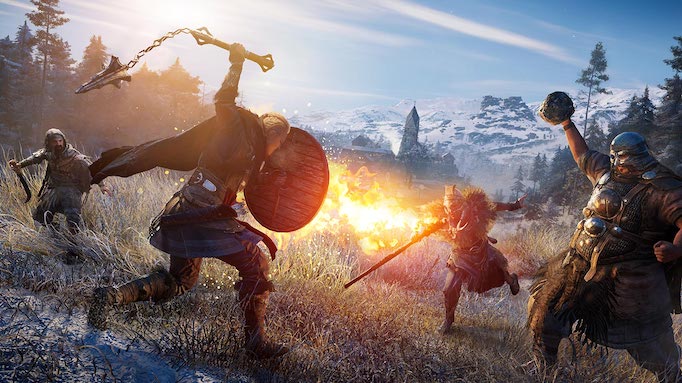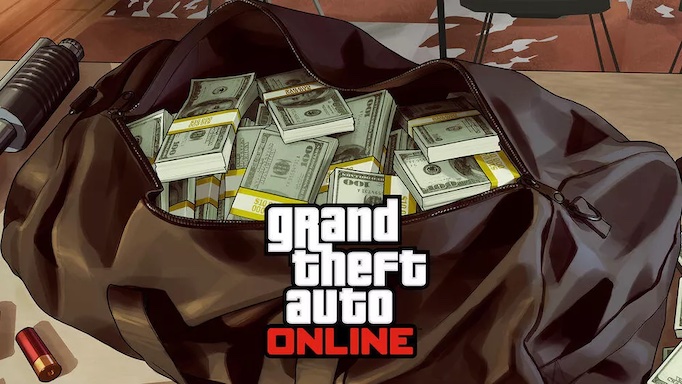Last week, Bloomberg broke that Ubisoft is working on a live service model for its biggest moneymaker, Assassin’s Creed, in hopes of emulating the success of games like Fortnite and GTA Online. The same day, Ubisoft went ahead and officially announced Assassin’s Creed Infinity, touting the “collaborative, cross-studio structure between Ubisoft Montreal and Ubisoft Quebec that will guide, grow, evolve, and define the overall future of Assassin’s Creed.”
Instead of creating titles distinct from one another on a biannual basis, Ubisoft will transform the franchise so that it can “evolve in a more integrated and collaborative manner.” At the expense of Ubisoft Montreal and Quebec’s autonomy, one game will flow into the next, all part of the same framework.
I recently wrote about how Activision-Blizzard has similarly streamlined its business, moving teams to work on projects like Call of Duty Warzone, at the cost of the individual visions of studios like Vicarious Visions and Toys 4 Bob. But there’s a stark difference between Activision’s business model and Ubisoft’s plans: live service models for multiplayer titles have a history of success. Activision-Blizzard’s decision robs developers of opportunities to work on the projects they’re most passionate about, yes. But the financial benefits of turning them into cogs in ultra-profitable machines were never in question, at least in the short term.
There have been no major attempts, on the other hand, to turn a single-player franchise into a live service. As the first of its kind, Assassin’s Creed Infinity represents a significant risk to Ubisoft’s most valuable franchise.
In multiplayer titles, especially PvP (player vs. player) style games, a lot of the content is provided by the other players. The gamers you’re competing against make every round of Warzone a unique experience, even if it’s the thousandth time you’ve played on the same map. PvE (player vs. environment) requires more investment from developers. A Destiny strike may feel fresh with different teammates, but enemies will always behave the same way, which can grow stale faster than playing against less predictable human opponents.
In single-player games, every experience has to vary at least slightly from every other. It’s why Ubisoft can only release a new Assassin’s Creed every two years. The goal of a live service title is to keep players immersed for hundreds, if not thousands, of hours. In a game like Assassin’s Creed, developers are on the hook for every second of that experience, which is why a live service model for single-player games hasn’t even been attempted at this scale. Maybe Ubisoft knows something we don’t, armed with a bulletproof plan of how to replicate or reinvent the live service model with Assassin’s Creed Infinity. But that might be giving the video game publisher too much credit.
A frequent complaint about modern Assassin’s Creed titles is their length. The very first Assassin’s Creed took about 15 hours to complete, according to HowLongToBeat.com. Ubisoft overhauled the design of the series with Assassin’s Creed Origins, focusing more on open world environments with RPG-style progression. A standard playthrough of Origins is about 30 hours, which makes sense for that style of game. But the length ballooned to 43 with the follow-up Assassin’s Creed Odyssey and 56 in Assassin’s Creed Valhalla. Axios has slightly different numbers, but the point stands: the length of Assassin’s Creed has steadily increased.
At one point, the length of a game was a huge selling pointing for fans. For some, it still is. But in 2021, when older AAA titles regularly go on sale for $10 or less and subscription services like Xbox Game Pass and PlayStation Plus exist, players don’t need to make one game last for a whole summer. They have far more options than kids growing up before the digital era.
Given the complaints about the length of recent titles, how eager are fans for a version of Assassin’s Creed that never ends? A benefit of single-player is a beginning, middle, and end. Assassin’s Creed has always had an ongoing narrative, but it’s been pushed to the background in recent years. A live service model would likely have to put the convoluted lore and backstory front and center.
By all appearances Assassin’s Creed Infinity seems like a blunder, especially considering the chaos occurring inside of Ubisoft. A year after wide-ranging allegations of harassment and misconduct, little progress has been made within Ubisoft, according to reports. They lay out that the toxic work culture persists and the company is still protecting multiple individuals facing allegations. Maybe Ubisoft is looking for a win/distraction with Assassin’s Creed Infinite, which they say is years away from release.
In a toxic environment, bad ideas arise more often than good ones. Assassin’s Creed is already at the height of its success, even if its profits don’t measure up to the financial windfalls enjoyed by Fortnite, GTA Online, and Call of Duty Warzone. Ubisoft’s hopes of emulating their business models is more likely to sink the franchise than help it reach new heights.

















